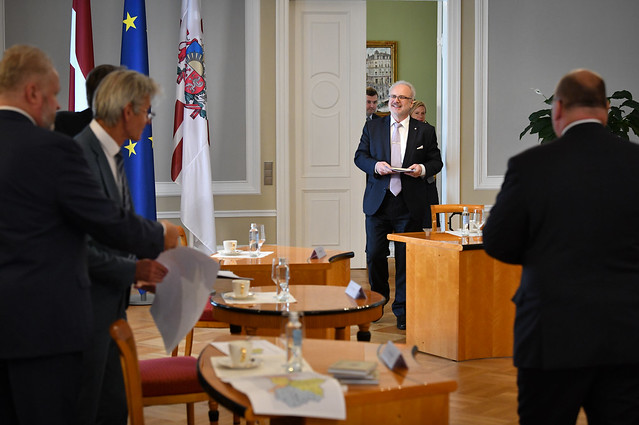Egils Levits intends to hand it over to the Saeima in early September. President is planning to meet with non-governmental organisations and local initiative leaders for historical Latvian lands and cultural spaces on 24 July. He will also make regional visits. On 10 July, President met with inhabitants of Sēlija. On 28 July, Egils Levits will visit Alsunga to take part in a discussion on Suiti culture.
According to the President, law is crucial for deepening public awareness about distinct features of historical Latvian lands and cultural heritage, and ‘the modern, contemporary identity that comes from a particular land. Latvianness is truly diverse’. President of Latvia also stressed the importance of ensuring that bill provides a framework for horizontal cooperation between government departments, institutions and communities, with Ministry of Culture (MoC) as the leading authority responsible for implementation, ‘to make sure the law is translated into practical action’.
Uldis Zariņš, Under Secretary of the State, MoC, noted that bill must provide for cross-sectoral action plan, appropriate financial and governance resources, cooperation with Ministry of Education and Science, Ministry of Economics, Ministry of Transport, Ministry of Environmental Protection and Regional Development, other ministries and local governments. Ritvars Jansons, Parliamentary Secretary, MoC, confirmed Ministry’s commitment to implement the new law. Signe Pujāte, Director, Latvian National Centre for Culture, emphasised the importance of extending cooperation framework to schools, Song Festival movement and informal education sector. Jānis Turlajs, Economic Geography expert who created the map of cultural and historical map of Latvia, explained how map was created and conversations about the sense of belonging to a particular historical land he has had while traveling to regions.
History, Geography and Demographics expert, Ilmārs Mežs, shared his thoughts on modern-day traits of belonging, highlighting the sense of belonging to a particular neighbourhood or certain side of contemporary culture characteristic to urban communities. Underlining the importance of the law, historian Guntis Zemītis pointed out that people are looking at local identity for reassurance, something they can hold on to amidst the uncertainty of the modern world.





